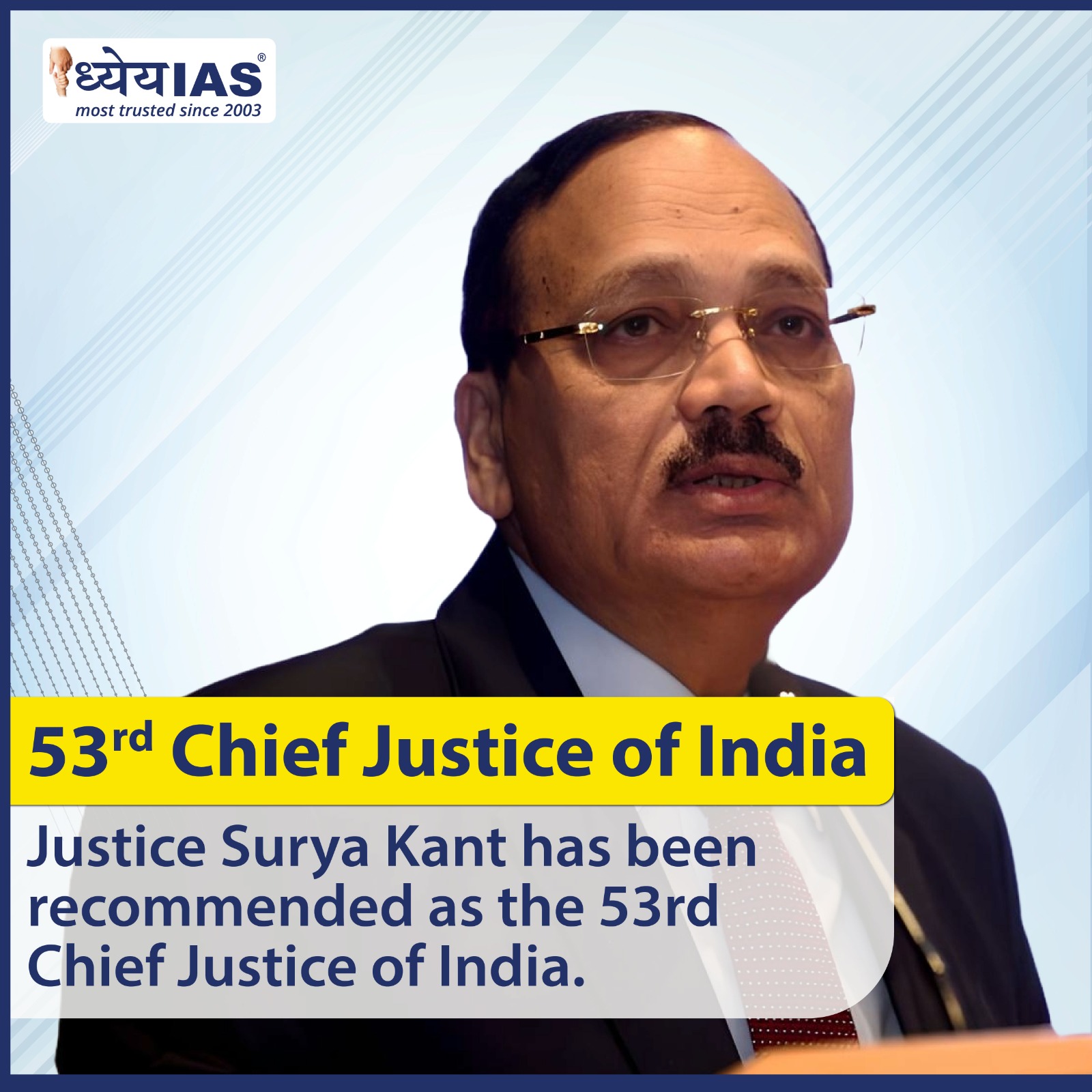Context:
Bhushan Ramkrishna Gavai (CJI) has formally recommended Justice Surya Kant as his successor to become the 53rd Chief Justice of India (CJI). If all formalities are completed, Justice Kant will assume office on 24 November 2025, following CJI Gavai’s retirement on 23 November 2025.
Legal & Judicial Career:
-
- Appointed as the youngest Advocate General of Haryana on 7 July 2000.
- Designated Senior Advocate in March 2001.
- Elevated as permanent Judge of the Punjab & Haryana High Court on 9 January 2004.
- Became Chief Justice of the Himachal Pradesh High Court with effect from 5 October 2018.
- Elevated to the Supreme Court on 24 May 2019.
- Currently serves (since 12 November 2024) as Chairman of the Supreme Court Legal Services Committee.
- Appointed as the youngest Advocate General of Haryana on 7 July 2000.
About CJI:
The Chief Justice of India is the highest judicial officer in India, heading the Supreme Court of India.
Key responsibilities include:
· Allocating cases and constituting benches in the Supreme Court.
· Administrative leadership of the Supreme Court and the wider judicial system (to the extent institutional norms permit).
· Representing the judiciary in dealings with other branches of government and in some ceremonial functions.
· Upholding the Constitution, legal processes and judicial independence.
Constitutional Basis:
· The appointment of the CJI is governed by Article 124(2) of the Constitution of India, which provides that the President shall appoint judges of the Supreme Court “after consultation” with such judges as he deems necessary. The retirement age for a Supreme Court judge (including the CJI) is 65 years.
How Is the CJI Appointed?
1. Seniority convention: Tradition holds that the senior-most judge of the Supreme Court (after the outgoing CJI) is appointed as the next CJI, if they are considered fit for the role.
2. The specific procedural details (though not absolutely binding law) are set out in a document called the Memorandum of Procedure (MoP) for appointment of Supreme Court judges.
3. Initiation: About a month (or thereabouts) before the current CJI’s retirement, the Ministry of Law & Justice sends a communication to the current CJI asking for a recommendation for the next CJI.
4. Recommendation: The outgoing CJI consults as required and recommends the next CJI to the government.
5. Government process: The recommendation goes from the Law Minister to Prime Minister to President. The President then issues the warrant of appointment.







